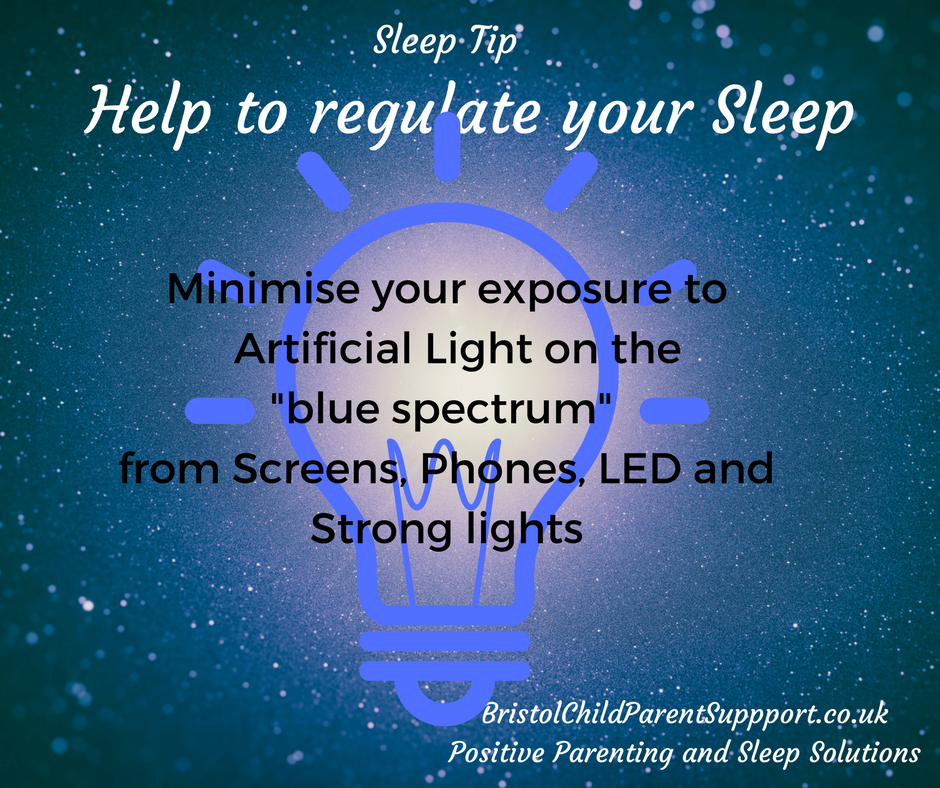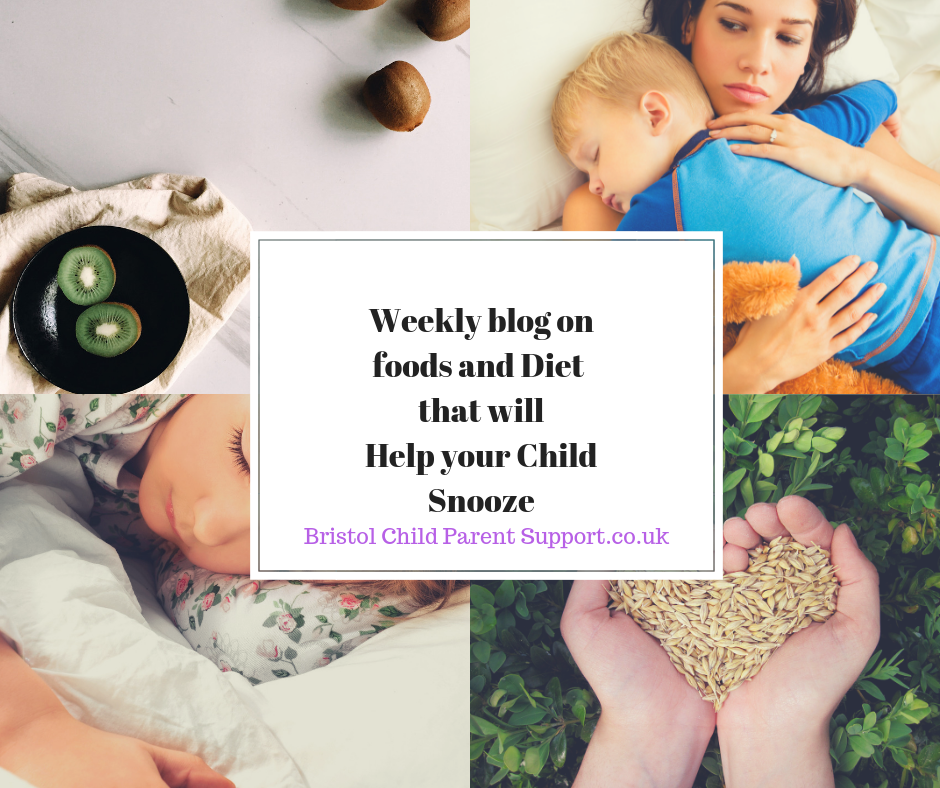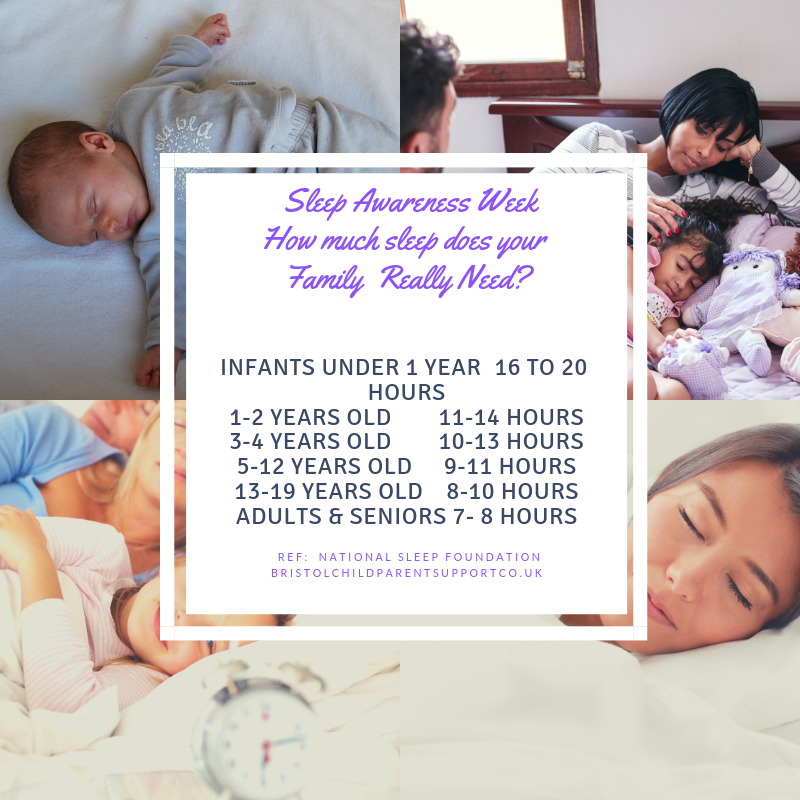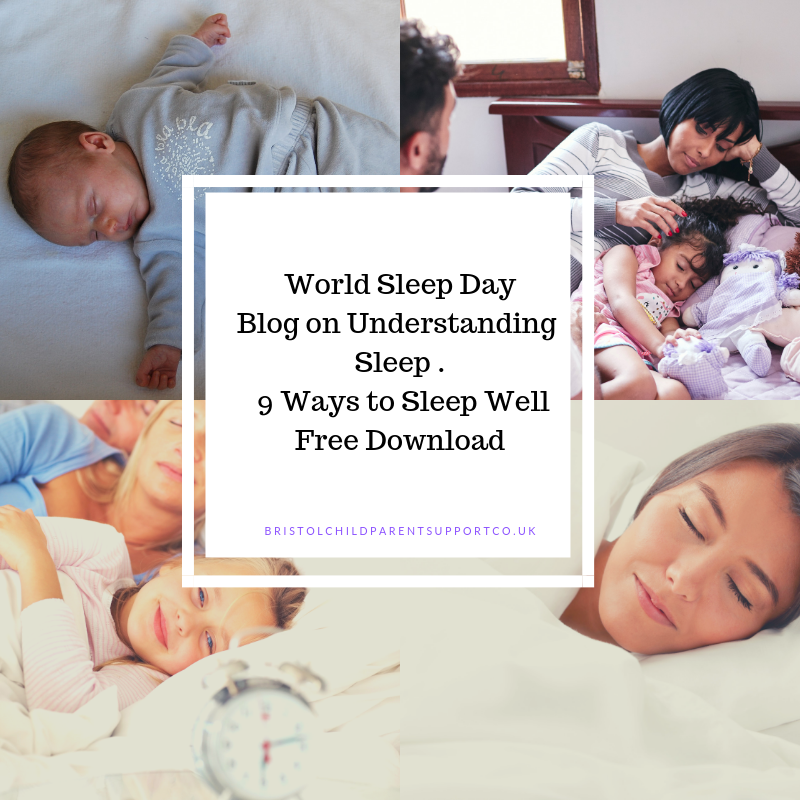It’s World Sleep Day on March the 15th. We spend a third of our life sleeping. Sleeping well helps us to have a healthy and prosperous life. Every child needs to sleep well for healthy development and growth. In this blog, let’s learn about Sleep Science and my free download at the bottom of the page to help everyone sleep well.
Understanding why we Sleep?
We don’t know why we sleep, and there doesn’t seem to be one single reason but many! We used to think it was an inactive state, but now we know that the brain and body are active during Sleep. Scientist Rebecca Reh at Harvard University notes four possible reasons:
- Recovery – rest for the body, cell growth, housekeeping for the body
- Protection – keeping quiet and reduces risk from predators.
- Energy regulation – use less energy when asleep
- Memory consolidation – formation of long-term memories and learning.
- The cardiovascular system also gets a break during Sleep. Researchers have found that people with normal or high blood pressure experience a 20 to 30% reduction in blood pressure and a 10 to 20% reduction in heart rate.
- Growth Hormones are released during deep Sleep. This is important for children.
Understanding how we Sleep?
There are two systems, a 24-hour cycle called a circadian rhythm and the Homeostatic sleep drive, which work together.
- Understanding Circadian Rhythm
We are not born with it, so our sleep cycle develops and is controlled by Melatonin. This is the hormone that regulates Sleep. Melatonin production depends on light. Exposing eyes to light during the day, especially in the morning, increases melatonin at night. Exposing eyes to light in the evening decreases melatonin. There are some concerns that the blue light from screens affects melatonin production.

2. Understanding Homeostatic Sleep Drive
Although it has a complicated name, it is easy to understand. The longer you stay awake, the sleepier you are. Sleep drive essentially is your likelihood of falling asleep at a given time. Interestingly, this phenomenon is caused by the gradual accumulation of a neurotransmitter called adenosine during the day, which is gradually reduced during Sleep. Caffeine affects adenosine, so drinking lots of coffee or energy drinks may affect your Sleep. Click here>> For foods that can help you sleep <<

Understanding Child and Adult Sleep Cycles.
There are four stages of Sleep: Non-REM (NREM) sleep (Stages 1, 2 & 3) and REM sleep. REM and non-REM Sleep alternate in 90- to 100-minute cycles Periods of wakefulness occur before and intermittently throughout the various sleep stages.
Stage I. This is the lightest stage of NREM sleep. Often defined by the presence of slow eye movements, this drowsy sleep stage can be easily disrupted, causing awakenings or arousals. Muscle tone throughout the body relaxes, and brain wave activity begins to slow.
Stage 2 is the first actual stage of defined NREM sleep. Awakenings or arousals do not occur as quickly as in Stage 1 sleep, and the slow-moving eye rolls discontinue. Body temperature begins to decrease, and heart rate begins to slow.
Stage 3 is known as deep NREM sleep. The most vital stage of Sleep, stage 3, consists of delta waves or slow waves. Growth hormone is produced during this stage. Awakenings or arousals are rare; it is often difficult to awaken someone in Stage 3 sleep. Parasomnias (sleepwalking, sleep talking and night terrors) occur during the deepest stage of Sleep.
REM sleep, also known as rapid eye movement, is most commonly known as the dreaming stage. Eye movements are quick, moving from side to side and brain waves are more active than in Stages 2 & 3 of Sleep. Children are more likely to have nightmares during this stage.
Babies are not born with a 24-hour wake/sleep cycle ( Circadian Rhythm). It can take up to six months to develop. You must try to help your baby develop the right cues for Sleep. Go to this website for some excellent evidenced based tips to help your baby sleep from Gwen Dewar Parenting Science to help your baby/child now ( a great Website)
How much sleep do you need?
This is controversial and keeps changing. The short answer depends on your health, age, genetics, and even culture. Getting enough Sleep is essential for your health. Research shows that when you sleep 5.5 hours per night instead of 7- 8 hours per night, you are at risk of obesity, diabetes and heart problems. Here is a guide below:

A free Download on helping your Family Sleep Well
Thank you so much for taking the time to read this. I hope that you have a good night’s sleep. I am posting more on Sleep on my Facebook page and another blog soon on sleep problems in childhood. You can read more on Sleep on my Sleep Consultation page too. With Love Catherine



